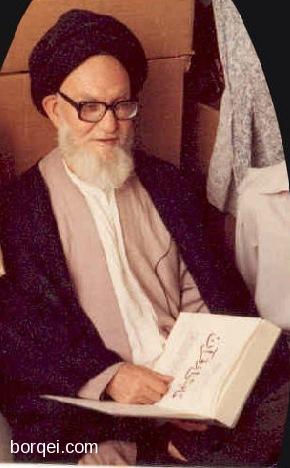Importance of authentic sanad:
Quran 49:6 – O ye who believe! If a wicked person comes to you with any news, ascertain the truth, lest ye harm people unwittingly, and afterwards become full of repentance for what ye have done.
However, about books of rijal: then the oldest isn’t something that can really be agreed upon either because both sides (sunni & shia) have at least claimed to have lost some of their early works.
Perhaps the oldest in existence with Shias is Rijal Al-Kishi. However, we do not know the time of death of the author, however, it is likely that he died in the mid-three hundreds. The three major books after that were authored by Al-Tusi (d. 405) and Al-Najashi (d. 450). I am not including Rijal Al-Barqi because we don’t seem to even know who the author is the book.
Standard of shia rijal:
For eg: About al-najashi:
Al Najashi narrated in his translation for muhammad Bin al Hassan Bin Hamzah el Ja’afari:
مات رحمه الله [ في ] يوم السبت ، سادس شهر رمضان ، سنة ثلاث وستين وأربع مائة
he died may Allah have mercy on his soul on saturday 6th of ramadan year 463 Hijri.
source: Rijal al Najashi P404, Published by Mu’asasat Al-Nashr Al-Islamiya – 8th edition.
and al Najashi the writer of the book died in 450 Hijri So How can he know that a Man had died after 13 years of his death?
On the other hand, the oldest Sunni rijal book in my possession at least is Tareekh Uthman bin Sa’eed Al-Darami ‘an Abi Zakariya Yahya bin Ma’een Al-Baghdaadi. (d. 233). Other important works are Al-Tareekh Al-Kabeer by Al-Bukhari (d. 256) and Al-Jarh wal Ta’deel by Ibn Abi Hatim (d. 327).
While referring to the first to write a book on the science of hadith, then the answer would be Al-Ramahurmuzi (d. 360). The oldest one I have in my possession though would be Al-Hakim’s Ma’rifat Uloom Al-Hadith (d. 405). While from the Shia side, I believe the first to write a book on the science of hadith is Al-Shaheed Al-Thaani (d. 965).
From Ahlul Sunnah the first Man To Ever start a research about “Science of Rijal” was Shu’ubah Bin Hajjaj “شعبة بن الحجاج ” in Iraq who died in 160 hijri. (However, his statements when it comes to hadith sciences can be found in the books of the scholars that followed. So, his work does exist, but not in a complete form)
(By comparison, they get their hadeeths from a couple of random people who claim to get the hadeeths from the Imaams(ra) and they decided to wait until all of their Imaams were gone before deciding to actually take hadeeth sciences seriously. Weren’t they told there would be a ghaybat? Why didn’t they bother preparing for it in the 200 or so years they supposedly knew about it?)
I will admit that there doesn’t seem to be a major gap between when Sunnis and Shias started to collect information on rijal. However, if one examines the books for each of the sects one will be amazed at the differences when it comes to the quality of the information and the length of the Sunni books.
I do believe that Shias haven’t really taken hadith seriously. This can be deduced by comparing their works to Sunnis.
Perhaps the most obvious argument is that Shias haven’t paid attention to things that Sunnis have.
Some issues that Sunnis have focused on that are ignored by Shias:
1- The weakening of narrators. Sunnis have authored several volumes of books that revolve only around the weakening of narrators. Some of these books contain thousands of narrators. Shias on the other hand usually refer to nothing more than Du’afaa’ Ibn Al-Ghada’iree when it comes to a book that focuses solely on weakening narrators. However, this book itself cannot be completely relied upon because we are not certain of the author.
2- Sunnis have authored books that revolve around good narrators that have become weak with age. Shias, on the other hand, have never done such a thing because they didn’t entertain such a possibility.
3- Sunnis have a significant upper hand when it comes to the documentation of dates. Because of this, scholars like Al-Tusi had to rely on work by Sunni scholars when stating the year in which a Shia narrator died.
4- Sunnis have authored books on chain disconnections. They would list out names of narrators and give evidences that these narrators didn’t meet their teachers. Shias, on the other hand, never entertained the possibility that a student probably never met his teacher.
5- The most important book of Shia rijal is perhaps Rijal Al-Najashi (d. 460), which includes biographies of 1269 narrators. Perhaps the most important book of rijal for Sunnis is Al-Jarh wal Ta’deel by Ibn Abi Hatim (d. 327) which includes 18,037 narrators.
6- Sunnis have authored books on tadlees. This revolves around students that have met their teachers, however, didn’t narrate a specific hadith from them. Shias, on the other hand, never entertained the possibility that a student may have not heard one of the narrations of his teacher.
7- From my personal observations, Shia narrators are mostly unknown. I wouldn’t be exaggerating if I said that this is the case with most narrators by far. The vast majority of Shia chains include unknown narrators. This isn’t the case with Sunnis.
Those are just a few that come to mind off the top of my head.
Note: A hadith with a matn that sounds reasonable doesn’t make it authentic. Just because a statement is true, doesn’t mean that the Prophet (pbub) said it, which makes it haram to attribute something to him, even if there is no apparent harm in doing so.
Many shia’s believe that anything that sounds good makes it acceptable. However, this could lead to the implementing of whichever punishment seems “good”, in other words, adding to the religion whatever suits one’s worldly outlook. Homosexuals weaken all hadiths about homosexuality, and bankers weakening all hadiths regarding usury, fruit merchants authenticating all the hadiths that speak well of fruits, etc.
Similarly, the same can be applied into the political hadiths. One could choose to authenticate all the hadiths that praise Ali(ra) and weaken all the hadiths that praise Mu’awiyah(ra). As you are aware, this isn’t the case when it comes to how Sunnis deal with these hadiths. In fact, most of the hadiths that praise Mu’awiyah have turned out to be false (inshallah i will post that in another topic).
Ignoring the science of hadith (like today’s shia’s) leads to nothing but cherry-picking. Unfortunately, that is how some people would rather have it. They’d rather pick and choose their religion from hadith collections instead of following as set amount of strictly chosen hadiths that in some cases will go against one’s own values. The latter route is the harder one to take.













Great articles. Unfortunately the Shia books of hadith do not follow a method of authenticating their narrators. They claim that the Sunnah ahadeeth cannot be considered Sahih, but at the same time, they use them to back up their claims.
Mr Ghassan nounu for your kind information when someone replies from your book it doesn’t mean they are using the reference as their backup but they are just simply slapping on your face and proving their argument according to your mind set
Pingback: Can hadith abrogate Quran? « EXPOSING & ANSWERING SHIITES